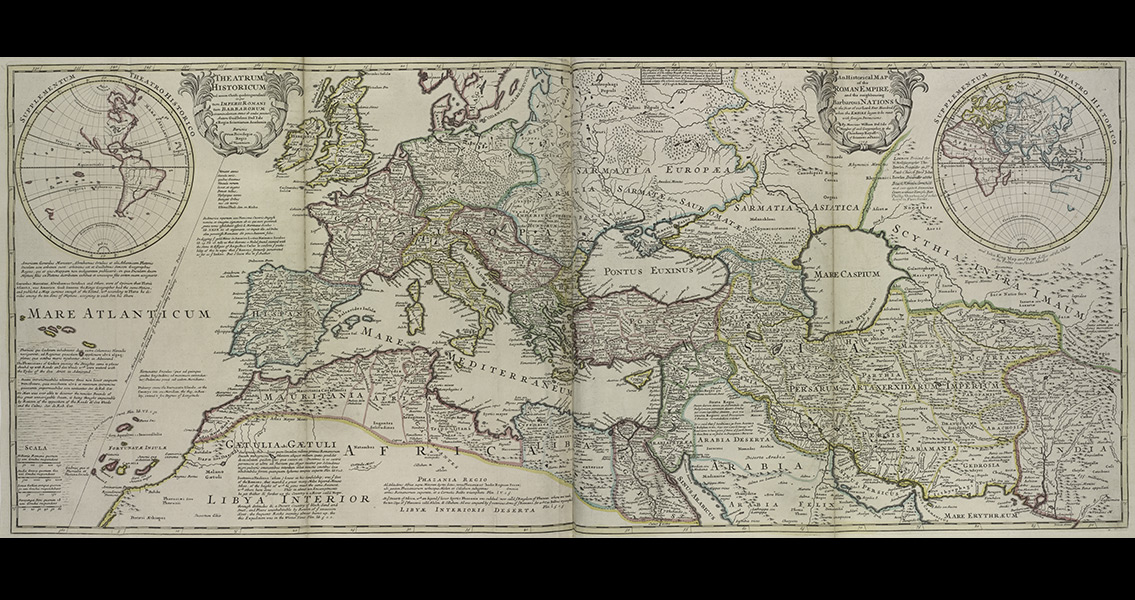<![CDATA[The boundaries of the Roman Empire will be expanded just a little bit farther west, following the recent discovery of a Romano-British settlement approximately 20 miles beyond the previously established boundary of Roman influence. Archaeological exploration in the area started after Dennis Hewings and Jim Wills unearthed Roman coins in the rural village of Ipplepen, Devon, in 2009, using metal detectors. Following their lead, archaeologists uncovered an entire settlement which had obvious trade links with the rest of the Empire. The newly established Ipplepen Archaeological Project has just started fieldwork after involving the University of Exeter, the Portable Antiquities Scheme (British Museum), Cotswold Archaeology and Devon County Council. It was believed that the rural areas were not particularly affected by the Roman’s presence, however, the discovery of large amounts of Roman pottery which had been made in other regions of the Empire and then imported into Britain has connected the rural sites to the rest of the Roman Empire. "The presence of these kinds of vessels demonstrates that the people living here... adopted Romanized ways of eating and drinking" including "a taste for Mediterranean products such as wine and olives", Danielle Wootton, with the Portable Antiquities Scheme, told BBC News. The site in Ipplepen also has some puzzling aspects when it’s compared to other known settlements in neighboring counties, like Somerset for example, where a large number of coins, pottery and brooches were discovered. One theory researchers have is that the Dumnonii tribe, who inhabited the area which is now modern day Devon, somehow managed to retain their own traditional identity as opposed to becoming entirely Romanized. The Dumnonii are believed to have occupied the relatively isolated region of Cornwall, Somerset and Devon (possibly a part of Dorset as well). Their cultural influences, as expressed in their ceramics, were from the Armorica peninsula, across the English Channel, as opposed to the southeast areas of Britain. They do not appear to have had a political center. Their coins are rare and none of them were minted locally; their Bronze and Iron Age hill forts suggest a number of smaller tribal groups that lived alongside one another. The Roman Conquest over Britain happened gradually. A substantial section of the British Isles came to be ruled by the Roman Emperors between 43 CE and 410 CE, starting with Emperor Claudius. Claudius’ general, Aulus Plautius, was the first governor of Roman Britain. Like other regions which lay on the edges of the Empire, Britain had enjoyed diplomatic as well as trading links with the Romans since Julius Caesar's invasions in 55 and 54 BCE, during the Gallic wars. The Roman’s economic and cultural influences were a significant piece of Britain’s Iron Age, especially in the southern regions. Roman rule ended in different regions of Britain at different times, and typically under different circumstances. Beginning early in the fifth century, the Roman Empire was no longer able to defend itself against both internal rebellions and external threats posed by the Germanic tribes which were expanding across Northern Europe. This situation, as well as its consequences, led to the permanent detachment of Britain from the Roman Empire. This article was changed on 1st July 2016. The original wrongly claimed that the Roman Empire had ruled over the entirety of Great Britain]]>
Discovery in Devon Expands the Boundary of Roman Rule in Britain
